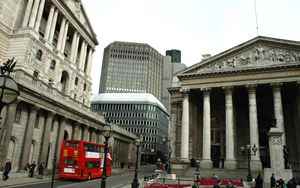(Finance) – “I have given considerable weight to the risks that, if not controlled by monetary policy, domestic capacity and inflationary pressures would probably be greater and more persistent than expected. Consequently, my preference has been to move relatively quickly to a more neutral monetary policy stance“He said it Michael Saundersan external member of the Bank of England’s Monetary Policy Committee, compared to his preference for raising rates at a faster pace than most of his colleagues at the BOE.
Saunders, whose term will expire in August, is one of the three officials of the Bank of England (BOE) which voted for a increase of 50 basis points interest rates. The BOE, on the other hand, last week raised rates by a quarter of a point to 1%. All things being equal, the likelihood of policy moving at a larger pace is likely greater when the rate is clearly below neutrality, “she added, noting that the credibility of the central bank “it is not infinite and cannot be taken for granted“.
“Inflationand the key measures of longer-term inflation expectations are uncomfortably elevated – he explained during a Resolution Foundation event – In addition to the sharp increases in energy and consumer goods prices, domestic inflationary pressures have increased in recent quarters, evident in the trends of capacity tensions, longer inflation expectations term, core wage growth and service inflation “.
“The strength of external costs is eroding real incomes and is likely to limit real spending,” he added. inflation expectations and therefore, with the rigid labor market, could pay off more difficult to ensure that domestic inflationary pressures return to a pace consistent with the target“.
“Against this backdrop, the Monetary Policy Committee recently raised rates by nearly 100 basis points,” Saunders said. our updated assessment of the economic outlook, some degree of further tightening of monetary policy may still be appropriate in the coming months“.
